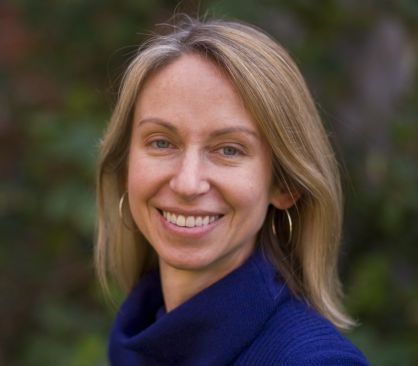In a previous post I wrote about Lisa Hymas, senior editor at grist, who wrote about the value of being childfree from an environmental perspective. She also did a great interview on MSNBC this week.
In part she talks about what childfree have been talking about for while now — that the choice not to have children is not talked about enough (although it is talked about much more these days than in the past), and when it is, the childfree sentiment is At Last, someone wants to hear from us!
She also makes the point that a lot of childfree that she has talked to have occupations that involve kids. Indeed, the notion that all childfree don’t like kids is just not the case. We just choose not to raise our own.
But she adds a nice twist–there will be soon 7 billion people on the planet, and not bringing another person onto the planet is one of the best things you can do for the earth and the people already on it. The calculation on greenhouse gas emission impact is startling–when you have child it goes up by 570% — because you not only have the kid, but then the kid has a kid, etc. It is a ” massive increase in your own impact.” On Earth Day this is something to think about.
Population also comes up on a day like today. While many experts say that we have already passed the point of being able to sustain the population we have, Fred Pearce, an environmental journalist, might disagree. He was on The Daily Show last night with Jon Stewart, and ironically has positive thoughts about our population. He indicated that world population will stabilize soon because women are having fewer children. Why? Because they are in or are going into the workforce. When faced with take a job or have a baby, he says women take the job. Mmmm. In need to see the research and data on that.
He predicts that our population will stabilize in 2040 at 8 billion and then begin a decline after that. By then, he may be right, but we will be way beyond sustainability at that point. It is more than women just continuing to have about two babies. One child or none would make a better difference for the population numbers and for greenhouse gas emissions for those of us who are here along with 8 billion others! Frankly that number is a scary thought. I’d like to see a visual of what that would really look and feel like. If we could, I bet even Pearce would not be as optimistic.
Do you think people will take Lisa points to heart and truly consider having one child or none for the good of the planet?
Do you know of Pearce’s work or his book, The Coming Population Crash: Our Planet’s Surprising Future?






I have chosen to have only biological child. I am theoretically open to adoption when my daughter is a quite a bit older, though I know adopting is a bit of a hit and miss, since there aren’t too many children available for adoption anymore. I have to be honest, though, and admit I didn’t make this choice for environmental reasons. It’s just the lifestyle that suits me best.
I also have to say I’m a bit sceptical of the overpopulation crisis. I remember back in the 1960s there was a book called The Population Bomb that predicted that life expectancy in the US would plummet, the Great Lakes would dry up, etcetera. None of that happened. So I can’t help thinking of this population talk as a bit alarmist.
Moreover, it seems like birth rates have dropped. In most European countries, for example, the birth rate has actually fallen below replacement level. And even in Third World countries women are having fewer babies because one, many of these women now have careers outside the home and two, they feel it’s better to give more (time, money, etcetera) to a few children than to spread their resources thin among more.
So yes, maybe my choice has helped the environment, but even that I’m sceptical of, and I really can’t say I made it for reasons larger than myself.
I think one point that needs to made is that while people in the West (U.S., Europe, etc.) may be having fewer children than people in other countries, those children born in the West will likely have a much heavier carbon footprint because they tend to live longer and CONSUME way more. For example, the study cited by Hymas asserts that the long-term impact of a child born to a family in China is less than one fifth the impact of a child born in the U.S. That’s pretty staggering!
I don’t know if people will consider having fewer children to save the planet, but they certainly should at least consider what their own childrens’ and grandchildrens’ lives will be like if our planet is unable to sustain a population of 7+ billion people. It’s a scary notion. I certinaly think about that, and that’s my main reason for being childfree.
Hi Sara, You make a great point. The U.S. is the biggest consumer and the biggest carbon footprint per person….the stats on China may be what they are now, but China’s carbon footprint is on the rise and fast, as they “westernize” and become a growing global force. I admire your decision to be childfree; you put the impact of your actions on the planet and the people already on it first. It’s the farthest thing from being selfish–which is what childfree are so often inaccurately accused of being! ~L